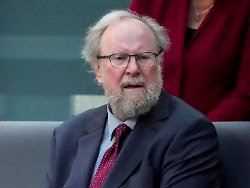Saturday, April 03, 2021
Dispute over identity politics
Thierse: Give the “common people” time
With a contribution on identity politics, SPD politician Thierse triggers a heated debate. Now the former President of the Bundestag takes a stand on his views and strikes a conciliatory tone.
In the dispute over identity politics, ex-Bundestag President Wolfgang Thierse took a step towards his critics. In an interview with the “Tagesspiegel”, the SPD politician said on the subject of gender: “I would like the ‘common people’ to be given a little time.”
Many fears of discriminated groups in Germany are true. “I didn’t say that society was already peaceful,” Thierse told the newspaper. But: “If you want to achieve something for minorities in a democracy, you have to win majorities for it.” According to Thierse, this is only possible under one condition: “I would like to see attentive willingness to learn from majorities and unaggressive willingness to explain in minorities.”
The debate was triggered by an essay by Thierses in the “FAZ” entitled “How much identity can society tolerate”. In his polemic, he criticized the claim of minorities to define what is right and wrong for them on the basis of their identity, instead of openly discussing it.
A heated debate ensued. SPD leader Saskia Esken and Vice Kevin Kühnert distanced themselves from Thierse. In an internal e-mail, both said they were “ashamed” of SPD representatives who were not named and who painted a “backward-looking picture of the SPD”. Thierse then brought up his possible withdrawal from the party. He later refrained from doing so.
Thierse received support in the debate from historian Peter Brandt, among others. In a guest article in the “FAZ”, the son of the former Federal Chancellor Willy Brandt wrote that Thierse had worried about the cohesion of the community and therefore developed an offer for a minimum consensus within social democracy. The fact that Esken and Kühnert reacted so sharply shows that the party leadership is not in a position to politically manage a debate conflict, according to Brandt.
.
